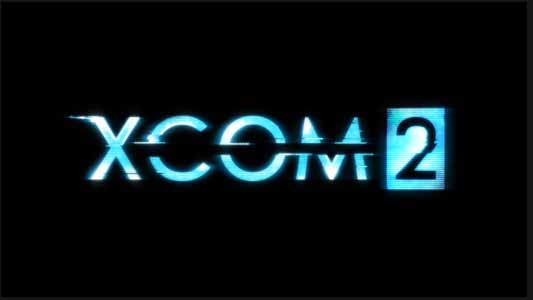|
Click here to return to the main site. Tim Wynn (composer)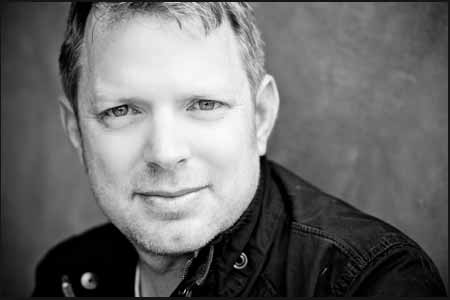 Timothy Michael Wynn began his music training as a founding member of the prestigious Orange County High School of the Performing Arts in 1988. From there he was accepted into the USC School of Music, where he studied under Elmer Bernstein, Christopher Young, Buddy Baker and Jerry Goldsmith. He has found success in scoring feature films, television series, video games and documentaries. Darren Rea caught up with him as the score for XCOM 2 was released... Darren Rea: How did you get involved with XCOM 2? And at what point in the production process of the game were you brought in?
DR: Do you find that every project is totally different? And how do you prefer to work? Are you a composer who likes a solid brief or do you prefer to have free reign on the creative content of your music? TW: In most ways, each project is unique and requires a different approach. When starting on a new project I like to do research before I have written a single note. I want to read the story/script and look at as much concept art as possible. That way when I sit down to compose at the keyboard, I have already imagined the musical direction I want to go in. I am comfortable with either being wholly creative or given a specific brief. You almost have to be nowadays. Some projects that I work on, already know what they want. They are fairly set in their ways so I have to find a way to work and thrive within those constraints. Other projects might not be as sure of what they are looking for and rely on me to come up with the overall vision. Either is fine but I think I do my best work when I am given free reign. There’s something about the pressure of having all of the responsibility that fuels my creativity. DR: How long did you have to compose the score for XCOM 2? And how does that compare to other projects?
DR: Is there much difference in the way you have to approach composing for game scores as there is for TV? TW: There is a huge difference. The schedules are polar opposites. With TV you get a week to two to complete the entire episode. With games there is a much bigger window to compose. But that is out of necessity. Game scores have to be able to be played over and over and serve different masters. Scoring the cut scenes is very similar to working in TV and with XCOM 2 there were 50 of them. In that way it is similar to a film. DR: You studied under Elmer Bernstein, Christopher Young, Buddy Baker and Jerry Goldsmith. What was the most important thing you learned from them that you still hold dear to this day? TW: I did, and feel very grateful to have been able to learn from them. And that’s just a partial list. I should also mention some of the other greats: Bruce Broughton [pictured], Joe Harnell, Ron Jones, and David Raksin. It was an amazing time of my life to be sure.
The other thing that stuck with me through the years was something Elmer Bernstein said to our class. “All of you sitting in this room are just as good as me at composing. I have just been doing it longer.” When someone like Elmer Bernstein, who was one of the finest and most talented people I have ever met, says something like that, it makes an impression on you. Those words gave me the confidence I needed to enter into the field that can be difficult and cruel sometimes. DR: Was there any segment of the score for XCOM 2 that was hard work to get just right? TW: It was mostly a smooth process. I had great communication with 2K Games and Firaxis about what XCOM 2 needed musically. I guess the only tricky area was getting the combat music. When you enter into combat, 2 tracks actually start playing - one for XCOM and one for Advent. They crossfade between the two depending on whose turn it is. Chris D’Ambrosio and his audio team at Firaxis did an amazing job to get that to work just right. DR: Are you a composer that writes down tunes whenever they come to you; that you store away to work on later for future projects, or are you only focused on the project at hand?
DR: Can you remember the first piece of music in a film/TV series that really caught your attention? TW: I guess if it’s the first piece to catch my attention, I would have to say either Akira Ifukube’s music from the Toho Godzilla films or Jaws by John Williams. As I got older I started to listen to the scores of Jerry Goldsmith. Star Trek, First Blood and Planet of the Apes are my favourites of his. DR: If you could take one piece of music you've composed to be stored away and discovered by your great grandchildren in the future, what piece would that be?
For games I would choose my themes for The Darkness II, Red Faction Guerilla, The Punisher and Tiberium. For TV it would be 'Tides' from Tokyo Airport or 'From the Past' from Lucky Seven. For films it would be my theme from Descendant or 'Marcus' from James Dean: Forever Young. You can check them out on my Soundcloud or my website. Funny thing is that these are all orchestral pieces that I am proud of but for the majority of people they get impressed with the more pop/rock songs I write. You can’t win either way! DR: What are you currently working on? TW: I am finishing up a game project for The Creative Assembly and starting on a TV show for Disney.
The soundtrack to XCOM 2 is released by 2K as a digital album on 05 February 2016. Click here to buy this digital album - Amazon.co.uk Return to... |
|---|
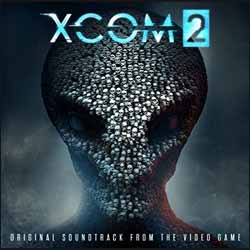 Tim Wynn: I got involved with XCOM 2 during the spring of 2015. I previously worked with Firaxis and 2K on XCOM: Enemy Unknown so I was excited to be asked to work on the sequel. When I was brought in, the game was already in good shape. The story was in its final stages and the in-game movies were just starting to shape up.
Tim Wynn: I got involved with XCOM 2 during the spring of 2015. I previously worked with Firaxis and 2K on XCOM: Enemy Unknown so I was excited to be asked to work on the sequel. When I was brought in, the game was already in good shape. The story was in its final stages and the in-game movies were just starting to shape up.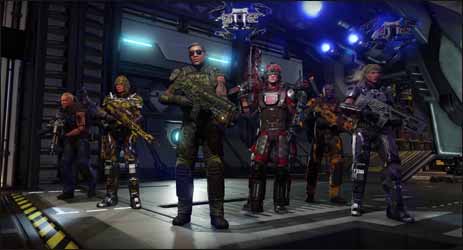 TW: From start to finish, I had about 7 months. I think that is fairly normal for games. Games are much different to movies. The music has to be able to do so much more when it comes to the interactivity aspect of it. There’s much more trial and error. Often times the game is being changed and adjusted up to the very end. It can be much more complicated than films that tend to be much more linear.
TW: From start to finish, I had about 7 months. I think that is fairly normal for games. Games are much different to movies. The music has to be able to do so much more when it comes to the interactivity aspect of it. There’s much more trial and error. Often times the game is being changed and adjusted up to the very end. It can be much more complicated than films that tend to be much more linear.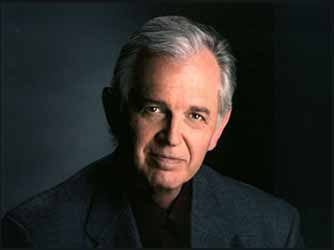 It’s hard to pick just one thing that I learned from them. Outside of the music lessons I feel like one of the most important things I took away from USC was how to be a professional. Buddy Baker was such a positive guy and taught us how to respect everyone and treat them well. I guess that is more of a life lesson but it applies every day and on all projects.
It’s hard to pick just one thing that I learned from them. Outside of the music lessons I feel like one of the most important things I took away from USC was how to be a professional. Buddy Baker was such a positive guy and taught us how to respect everyone and treat them well. I guess that is more of a life lesson but it applies every day and on all projects. 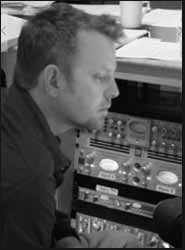 TW: Both. When I start a project my mind is bursting with ideas. I will record all of them on my phone or in midi mockups to be used throughout the project. With so many ideas it is inevitable that not all of them make it on the project. I try to bookmark them to use for another project but I never do. I always start with a blank slate. I guess my mentality is that I can always improve. I suppose I also want each project to have their own unique voice and don’t want to try to adapt old themes to a new project. You would be surprised how subtle variations between projects can make great tracks obsolete.
TW: Both. When I start a project my mind is bursting with ideas. I will record all of them on my phone or in midi mockups to be used throughout the project. With so many ideas it is inevitable that not all of them make it on the project. I try to bookmark them to use for another project but I never do. I always start with a blank slate. I guess my mentality is that I can always improve. I suppose I also want each project to have their own unique voice and don’t want to try to adapt old themes to a new project. You would be surprised how subtle variations between projects can make great tracks obsolete.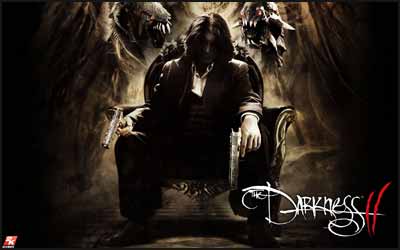 TW: Tough question. That kind of reminds me of “Who is your favourite child?” I guess you like each of your scores for different reasons. It could be a particular nuance that you really nailed or maybe it was squeezing out the perfect emotion for a scene.
TW: Tough question. That kind of reminds me of “Who is your favourite child?” I guess you like each of your scores for different reasons. It could be a particular nuance that you really nailed or maybe it was squeezing out the perfect emotion for a scene.